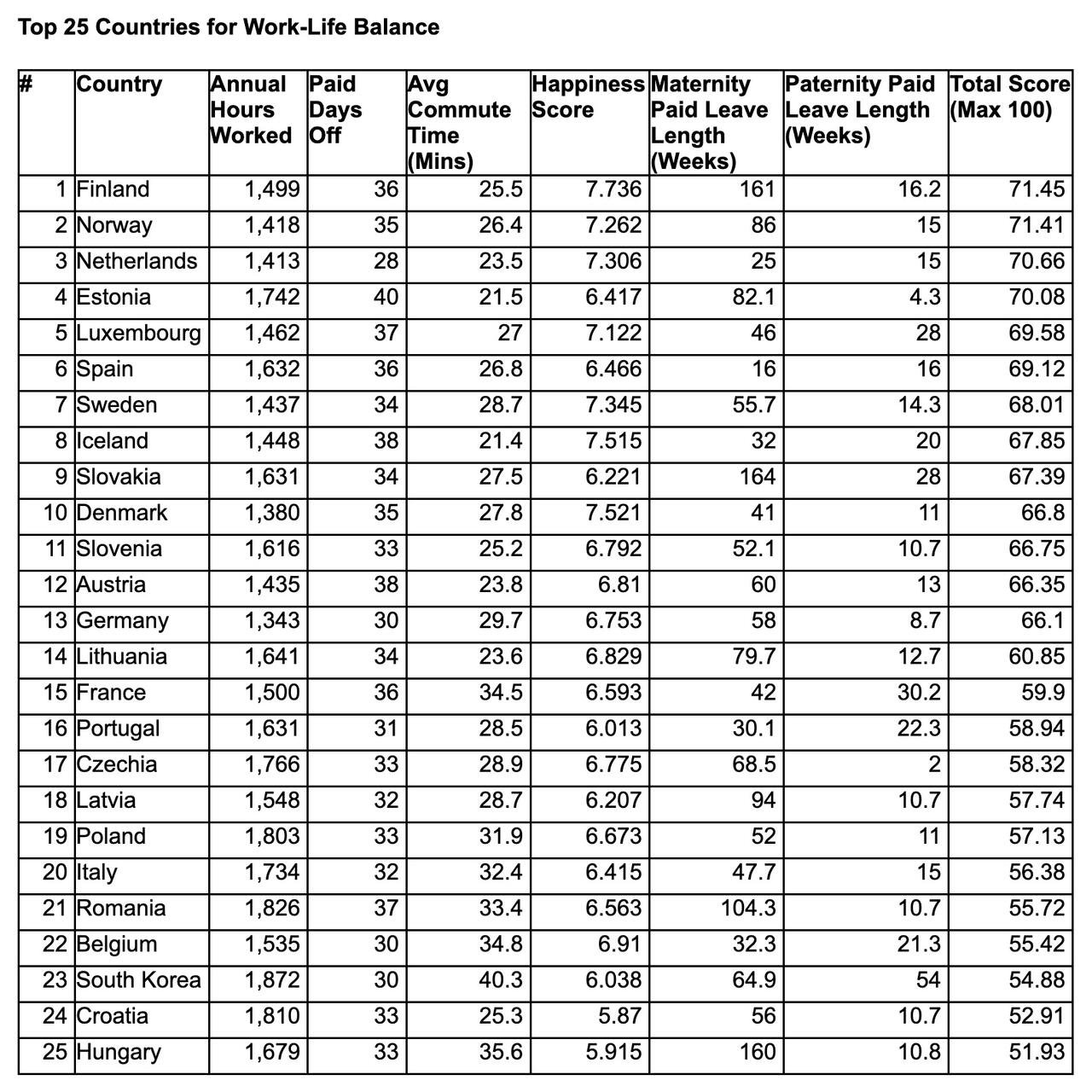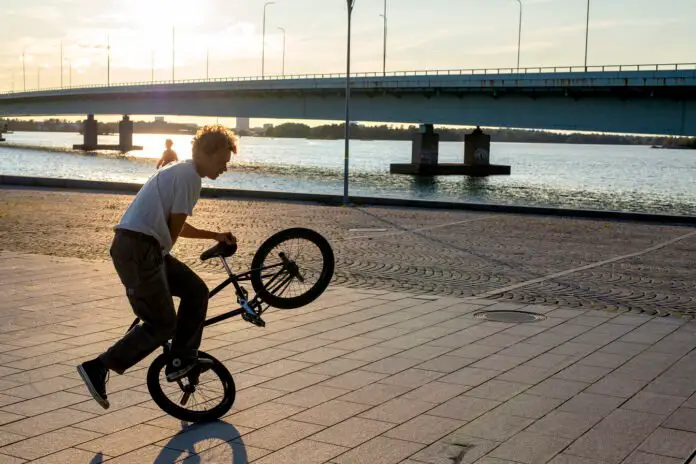In the realm of work-life balance, certain countries stand out as leaders while others struggle significantly. A recent analysis by CompareTheMarket examined 39 nations, identifying where employees experience the most healthy blend of work and personal life, and where excessive hours, limited leave, and inadequate support take a toll.
The study evaluated 10 factors, including working hours, paid leave, commute times, parental support, remote work options, and happiness ratings. The findings reveal stark contrasts between the top and bottom performers, highlighting how policies, cultural norms, and workplace expectations shape daily experiences.

Finland tops the list with a score of 71.45 out of 100. Finnish workers average just 1,499 hours annually, far fewer than those in Australia or the U.S., and benefit from 36 days of paid leave. Family policies are particularly generous, with mothers entitled to up to 161 weeks of paid maternity leave and fathers receiving over 16 weeks. Finns also enjoy about 15.2 hours daily for personal care and leisure, face an average commute of just over 25 minutes, and report a happiness score of 7.7 out of 10. The availability of remote work further solidifies Finland’s position as a leader.
Norway closely follows with a score of 71.41. Norwegians work even fewer hours, averaging 1,418 per year, and receive 35 days of paid leave. The country emphasizes parental support and maintains a strong focus on personal well-being alongside professional responsibilities.
At the bottom of the ranking is the United States, sitting at 39th place with a score of only 28.01. Known for its innovation, the U.S. suffers from some of the longest working hours, averaging 1,799 annually. It is the only nation in the study without federally mandated paid annual or parental leave. Americans allocate just 14.6 hours daily to personal care and leisure. While remote work is accessible and the national happiness score is moderate, these positives are overshadowed by a lack of structural support. For many, achieving work-life balance is largely a personal struggle, as the data illustrates.
The remainder of the top ten is filled with Nordic and nearby European countries. Sweden (68.01), Iceland (67.85), and Denmark (66.8) join Finland and Norway, while the Netherlands (70.66), Luxembourg (69.58), Spain (69.12), and Estonia (70.08) also perform well. Estonia stands out with 40 paid days off, the highest in the index, alongside robust digital infrastructure and increasing work flexibility. These nations share a cultural belief that long hours are not a mark of prestige, with generous paid leave and support for both mothers and fathers. The data suggests that shorter workweeks, higher happiness ratings, and supportive policies lead to greater well-being.
Australia ranks 31st with a score of 45.9. Australians work an average of 1,651 hours per year and receive 30 paid days off, which is less than many top-ranking countries. On average, they spend 14.4 hours daily on personal care and leisure, falling short of their Nordic counterparts. Parental leave policies are also lacking, with mothers receiving 18 weeks at 46.1% pay and fathers just two weeks. Commute times are lengthy, averaging 37.4 minutes each way. However, remote work is widely available, and the happiness rating stands at 6.9 out of 10, indicating that many Australians still find ways to balance their lives despite existing challenges. With enhanced leave policies, greater flexibility, and improved family support, Australia could significantly boost its ranking.
The overarching lesson from this data is clear: countries that excel in work-life balance have systems in place that encourage rest, family time, and enjoyment outside of work. In contrast, those at the bottom place the onus on individuals to achieve balance, often without institutional assistance. As the report states, work-life balance “is not just a luxury; it is essential for individuals, families, workplaces, and communities.” The evidence shows that when “work complements life rather than competes with it, everyone benefits.”

